SUMMARY
This is AI generated summarization, which may have errors. For context, always refer to the full article.
- Anti-graft court orders arrest of Senator Enrile, co-accused in plunder

Almost a month after Senator Juan Ponce Enrile and several of his alleged conspirators were charged for earning millions of pesos from the illegal diversion of his discretionary fund to fake non-governmental organizations, the anti-graft court Sandiganbayan on Friday afternoon, July 4, ordered their arrest. The court said it would only decide where the 90-year-old former senator would be detained, although no less than the President earlier indicated he should be placed under hospital arrest. The two other senators who surrendered over plunder charges in the same scam, Ramon Revilla Jr and Jinggoy Estrada, are detained at the PNP Custodial Center.
Read the full story here.
Earlier, prosecutors tried to have the charge sheet vs Enrile amended, but later withdrew the motion. Lawyer Jose Manuel “Chel” Diokno, founding Dean of the De La Salle University College of Law, explained to Rappler the implications of amending the charge sheets against the accused. Watch here. - Catholic bishops want to know where Aquino’s special fund went
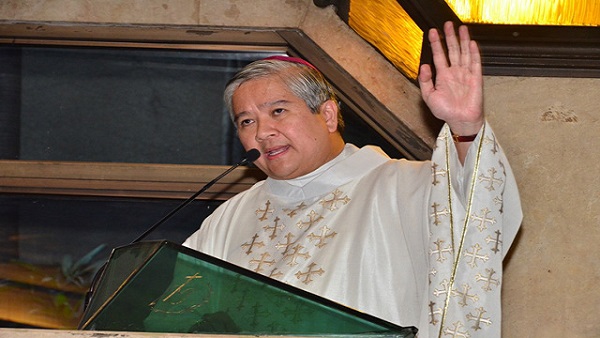
Catholic bishops challenged the administration of President Benigno Aquino III to investigate the corrupt within its own ranks, and called on state auditors “to tell the nation where the DAP funds went.” DAP, or the Disbursement Acceleration Program, is an invention of the Aquino government through which it disregarded the budget law and went on to move funds from one agency to another and from one project to another without the consent of Congress. The program, whose funds were reportedly also used to bribe senators to impeach the Chief Justice in 2012, has some aspects recently declared unconstitutional by the Supreme Court. Archbishop Socrates Villegas, president of the Catholic Bishops’ Conference of the Philippines, said “a government that professes to tread the straight path” – apparently referring to Aquino’s slogan, “tuwid na daan” (straight path) – “must be willing to let go of the corrupt in its own ranks,” and not selectively prosecute opposition figures.
Read the full report here. - UP Diliman confirms student suffered in fraternity violence

The Philippine’s premier state university finally confirmed, after many days of unverified campus reports, that one of its students suffered in a “fraternity incident.” The school administration refused to divulge the identity of the student or details of the incident, saying the victim’s family wanted to keep their privacy, but gave assurances that an investigation is being conducted. The University of the Philippines Diliman chancellor’s confirmation of the incident came less than a week after a De La Salle University-College of Saint Benilde student died and 3 others were badly injured in a fraternity hazing, prompting calls from various sectors for a review of the anti-hazing law.
Read the full story of the UP case here. Also, read here the CSB president and chancellor’s letter urging students to just say no when being recruited by fraternities. - Philippines, Vietnam form alliance in the face of aggressive China
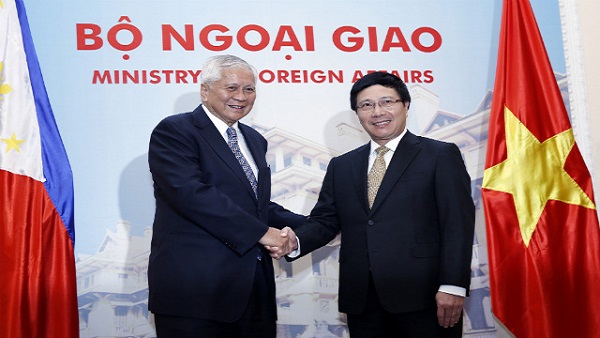
The Philippines and Vietnam have agreed to enter a more strategic partnership in several areas, particularly maritime security, as they face threats from an increasingly aggressive China over territorial disputes over the the South China Sea. Manila’s and Hanoi’s chief diplomats “discussed a wide range of issues and agreed to further promote cooperation in many areas such as fisheries, ocean and maritime, defense and security, trade, and investment,” according to the Philippines’ Department of Foreign Affairs. Their armies also vowed to conduct joint training.
Read the full story here. - Singapore denies ‘inappropriate’ promotion of domestic workers in malls
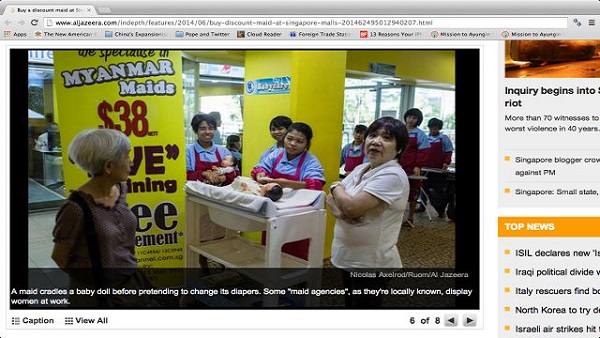
Singapore’s Ministry of Manpower reacted to a report by international news agency Al Jazeera that foreign domestic workers “are put on display and made available for ‘purchase’ in central shopping malls” in the city state. The government agency said it inspected agencies that the report said displayed “budget” maids at “discounted” rates like commodities, but “did not find any inappropriate ‘displays of FDWs.’” The Philippines’ labor agency nevertheless vowed to investigate the matter and has, in fact, suspended the accreditation of one of Singapoean companies named in the report.
Read the full report here. - Thai activist gets convicted, but walks out of jail
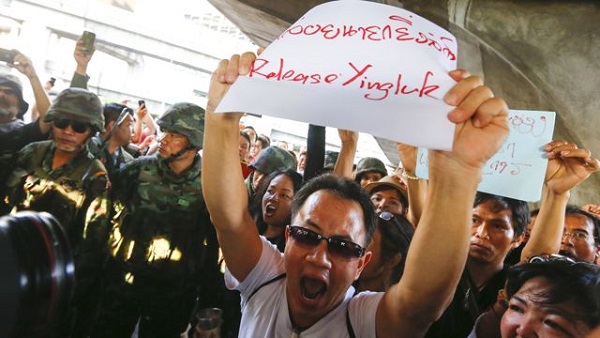
Weerayuth Kongkanathan, 49, was given a one-month suspended jail term after being found guilty of violating a ban on political gatherings, the first anti-coup activist to be convicted a military takeover in late May. He was originally sentenced by Bangkok’s Pathumwan Municipal Court to 2 months in jail and fined 6,000 baht ($185), but both were reduced by half when he pleaded guilty. Weerayuth vowed to join protests again, even if he faces the threat of getting imprisoned if he participates in further demonstrations. He said he would just “have to avoid being arrested again.” Since the junta ousted the kingdom’s caretaker government, political assemblies of more than 5 people have been banned.
Read the full report here. - Young voters’ social media use redefines Indonesian presidential election

Indonesia’s two presidential candidates, Joko Widodo and Prabowo Subianto, have tapped into the potential of social media to attract young voters who comprise about a third of the voting population. In the run-up to the July 9 election, the two camps flood feeds with memes, photos, videos and chatter about their campaigns and candidates. Indonesia’s social media users are, after all, among the most active in the world. There are about 65 million Indonesians on Facebook, while at least 15.3 million are on Twitter. Those under 30 years old, including the 5 million who will be voting for the first time, are heavy social media users, and they make up a third of the approximately 185.6 million total eligible voters. Jokowi’s social media campaign is run by tech-savvy volunteers, while Prabowo’s is run by digital analysts no older than 28 years.
Read the full story here. - WHO urges 33 countries to step up fight vs tuberculosis

The World Health Organization has called on 33 countries, including some of the world’s richest, to recognize the continued danger of tuberculosis and try to wipe it out by 2050. These countries – ranging from Australia to France and Germany, and New Zealand to the United States – were singled out because they “are really at the low level of incidence that allows them to truly target elimination,” said Marco Raviglione, head of the WHO’s anti-TB program. TB, which can be spread by sneezing, is the the deadliest disease after AIDS to be caused by a single infectious agent. While preventable and curable, it still infects some 155,000 people every year. in the 33 developed nations listed, around 10,000 died of the disease in 2013, WHO said.
Read the full report here. - Citing MERS threat, Philippine health office asks Hajj pilgrims to reconsider
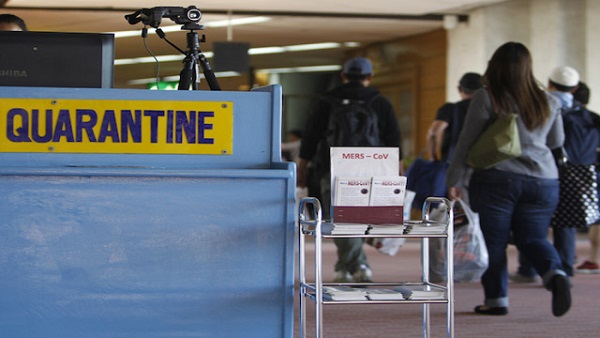
The Philippines’ health department urged Muslims to reconsider plans to join pilgrimages to Saudi Arabia this year due to the deadly Middle East respiratory syndrome (MERS) virus outbreak there. Some 6,500 Filipino Muslims are set to join the annual Hajj pilgrimage in October. “We know it’s a religious custom, but it is also our duty to provide health advisories,” said a health official, who asked the pilgrims if they could just go in 2015, when the disease is expected to be under control.
Read the full report here. - Public works agency hit for disregard of trees, historical sites
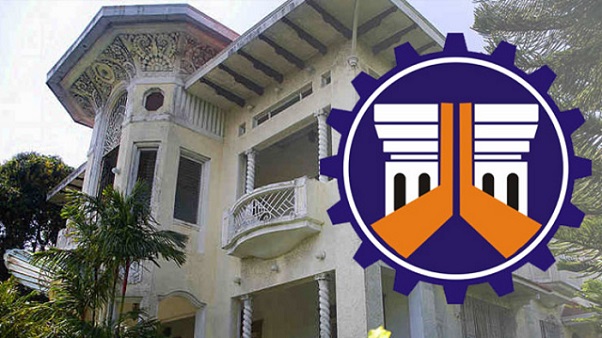
The Philippines’ Department of Public Works and Highways is facing criticisms for having bulldozed thousands of trees and disregarded a historical site in planning and implementing its road projects. Thousands of trees have already been cut in the provinces of Pangasinan, Laguna, Sorsogon, Baguio, and Cebu to meet the requirement for national primary roads to have at least 4 lanes or at least 15 meters in width. For this, the Office of Executive Secretary Paquito Ochoa Jr issued a memo in 2012 giving DPWH blanket approval to cut trees in 8 regions. In a recent forum, environmental and urban planning specialists showed DPWH Secretary Rogelio Singson that it is possible to widen roads without cutting the trees. Earlier, Singson took notice of protests, this time from historical preservation advocates, that a road-widening project in Sariaya, Quezon, that threatened to “ruin the patio of a church, municipal hall, park, and ancestral houses that give the town a unique character.” He told regional DPWH offices to strictly follow a 1991 department order to coordinate closely with historical preservation and cultural agencies in planning infrastructure projects.
Read about the DPWH chief’s reminder about historical sites here.
The full story on the multi-sectoral dialogue on the cutting of trees in favor of road projects is here.
Add a comment
How does this make you feel?
There are no comments yet. Add your comment to start the conversation.